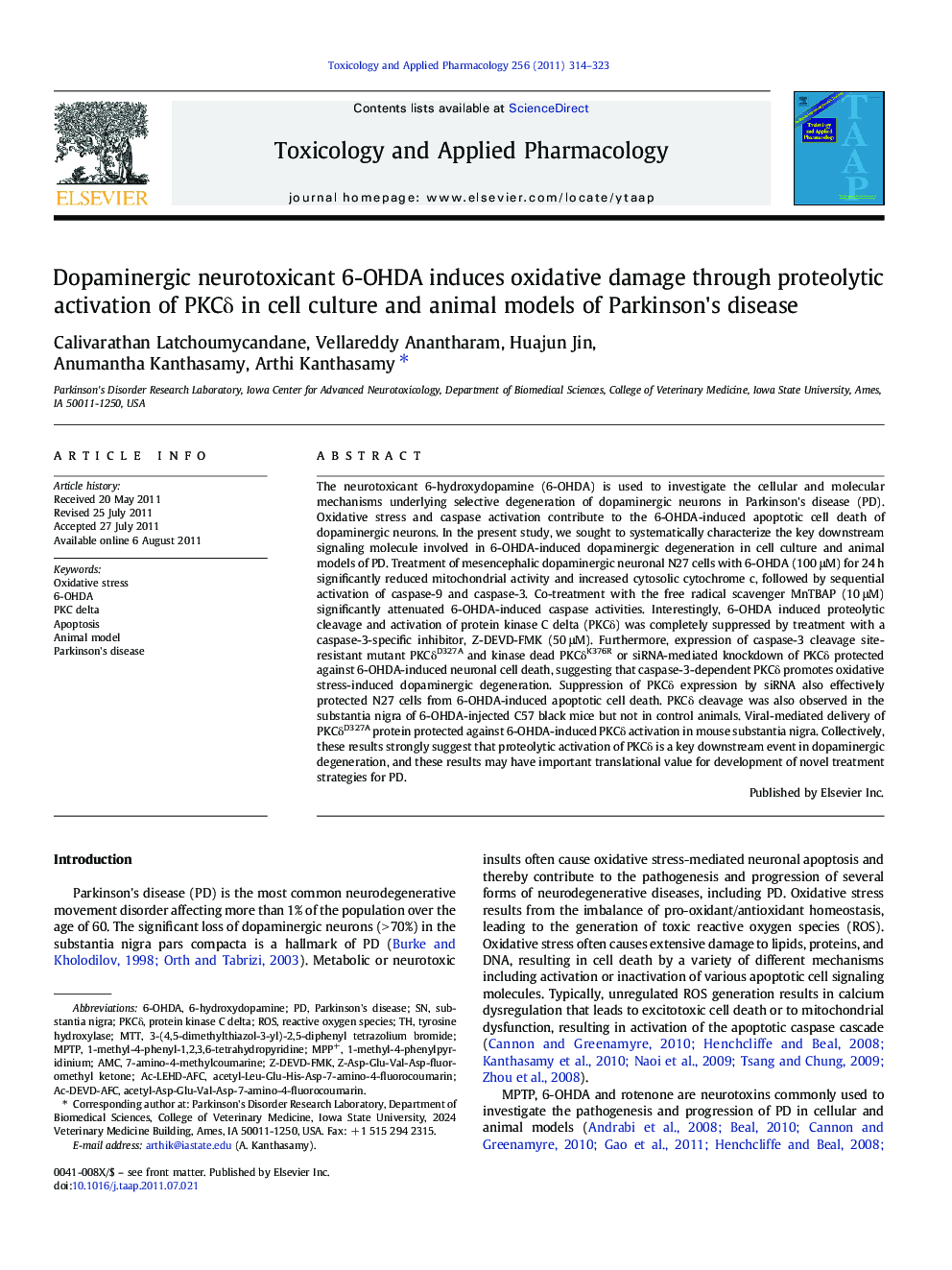| Article ID | Journal | Published Year | Pages | File Type |
|---|---|---|---|---|
| 2569245 | Toxicology and Applied Pharmacology | 2011 | 10 Pages |
The neurotoxicant 6-hydroxydopamine (6-OHDA) is used to investigate the cellular and molecular mechanisms underlying selective degeneration of dopaminergic neurons in Parkinson's disease (PD). Oxidative stress and caspase activation contribute to the 6-OHDA-induced apoptotic cell death of dopaminergic neurons. In the present study, we sought to systematically characterize the key downstream signaling molecule involved in 6-OHDA-induced dopaminergic degeneration in cell culture and animal models of PD. Treatment of mesencephalic dopaminergic neuronal N27 cells with 6-OHDA (100 μM) for 24 h significantly reduced mitochondrial activity and increased cytosolic cytochrome c, followed by sequential activation of caspase-9 and caspase-3. Co-treatment with the free radical scavenger MnTBAP (10 μM) significantly attenuated 6-OHDA-induced caspase activities. Interestingly, 6-OHDA induced proteolytic cleavage and activation of protein kinase C delta (PKCδ) was completely suppressed by treatment with a caspase-3-specific inhibitor, Z-DEVD-FMK (50 μM). Furthermore, expression of caspase-3 cleavage site-resistant mutant PKCδD327A and kinase dead PKCδK376R or siRNA-mediated knockdown of PKCδ protected against 6-OHDA-induced neuronal cell death, suggesting that caspase-3-dependent PKCδ promotes oxidative stress-induced dopaminergic degeneration. Suppression of PKCδ expression by siRNA also effectively protected N27 cells from 6-OHDA-induced apoptotic cell death. PKCδ cleavage was also observed in the substantia nigra of 6-OHDA-injected C57 black mice but not in control animals. Viral-mediated delivery of PKCδD327A protein protected against 6-OHDA-induced PKCδ activation in mouse substantia nigra. Collectively, these results strongly suggest that proteolytic activation of PKCδ is a key downstream event in dopaminergic degeneration, and these results may have important translational value for development of novel treatment strategies for PD.
